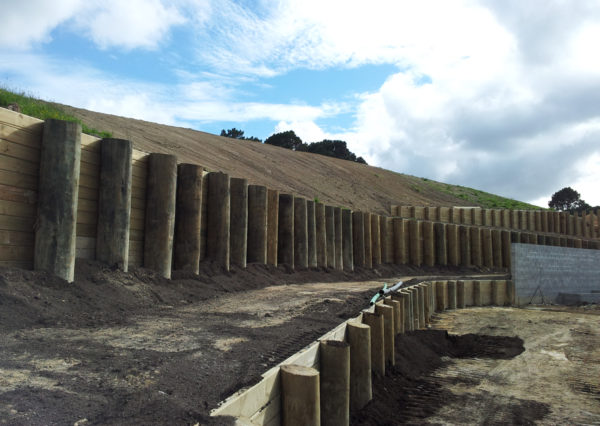
For a well-built house or office, retaining walls are crucial. These functional structures are important for controlling the movement of soil and water within a yard, as well as providing an effective barrier against natural hazards such as wind, rain, snow and ice. There are many different types of retaining walls available and a little research will help you select the one that best suits your needs and your budget. You can either buy pre-built kits or have them custom-designed. Before digging and lining up your retaining walls, there are many things to consider if you decide to build them from scratch.
Retaining walls are commonly constructed out of concrete, stone or wood. Each material has its advantages and disadvantages in terms of maintenance and use. It is important to research each material and choose the best one for your needs. For example, the stone can be quite expensive to install, but if it is properly maintained and looked after it can last for years, even decades.
Consider any weather conditions that may affect your choice of material when selecting your material. Concrete needs to be sealed once installed and is susceptible to cracking, which can weaken the structure over time. Wood is a more durable material, but requires more maintenance and care. Although stone can be more appealing, once sealed it is susceptible to cracking or general damage. If in doubt, it is always better for a professional assess the suitability and cost of a material for your requirements. They will be able to give you a more informed and detailed answer.
Once you have answered the basic questions about cost and durability, a contractor will be able to help you with the selection of materials for retaining walls. Prices vary depending on the size of the wall and the materials used. Retaining wall prices will vary depending upon the area you live in, as well as the complexity of the retaining wall. It is important to remember the most expensive materials may not be the best quality or most reliable. Do your research.
Material safety is a major concern. All loose materials should be secured and covered to protect them from falling or being stolen. A safe way to construct a retaining wall is essential. Construction should not be done in a negligent manner and must be considerate of others working around it. This can prevent serious injury and even death.
When selecting materials for retaining walls, cost is another consideration. Cost is important if the wall is to be a barrier to the surrounding environment. Retaining walls that are constructed of inferior quality materials will not last long and may not provide a barrier at all. Due to poor construction and low-quality materials, poorly built retaining walls might need to be replaced.
Contractors can offer a variety of options in terms of materials, price, schedule, and other factors. They can discuss your needs and give you advice about the best solution for you. There may be additional options available depending on the size of your project. These options include color and texture, height, as well as material choices.
For valuable materials such as water, land, rocks, soil, and earth, retaining walls are important. Good construction materials used in the initial construction provide stability for the structure, which in turn allows for longer life. Properly constructed retaining walls are energy efficient and reduce costs associated with cooling and heating. The materials used to build these walls protect the integrity of the soil and help prevent erosion. A well-constructed wall serves as the foundation for any building, and is a safe barrier from any external intrusion.
